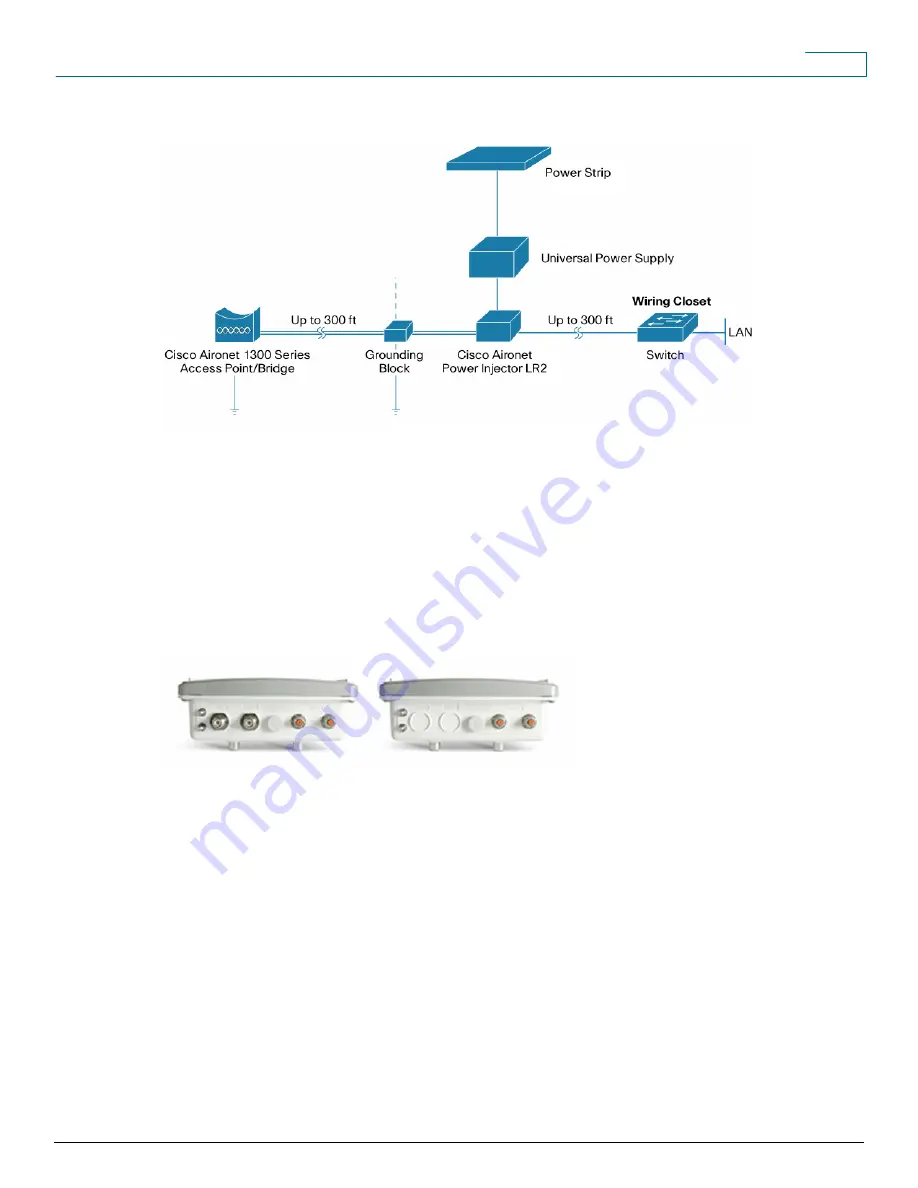
Data Sheet
© 2009 Cisco Systems, Inc. All rights reserved. This document is Cisco Public Information.
Page 5 of 14
Figure 3. Network Diagram with Power Injector
Cisco Aironet 1300 Series
The Cisco Aironet 1300 Series provides the 802.11g interface for access-point capability or bridge connections. By
placing the unit outdoors, close to the antenna, you can minimize the wireless cable losses—thereby maximizing the
range of the network. The unit is available with either an integrated antenna, or with connectors for external antennas
(Figure 4). The high-gain, integrated antenna is designed for easy installations of point-to-point links or non-root
nodes of point-to-multipoint networks as an autonomous bridge. The nonintegrated antenna version provides
professional installers with an RP-TNC connector that allows the deployment of omnidirectional, sector, or high-gain
dish antennas for specific application requirements.
Figure 4. Cisco Aironet 1300 Series Connector Options
Power Injector
The Cisco Aironet Bridge Power Injector converts the standard 10/100BASE-T Ethernet interface that is suitable for
weather-protected areas to a dual F-Type connector interface for coaxial cables that are more suitable for harsh
outdoor environments. The power injector also provides power to the outdoor unit over the same cables with a
power-discover feature and surge protection. To support longer cabling from your wired switch or router, the power
injector enables total cable runs up to 200 meters (Category 5 [Cat5] and coaxial). The Cisco Aironet 1300 Series
ships with the Cisco Aironet Power Injector LR2 (Figure 5) and an AC power supply.
































